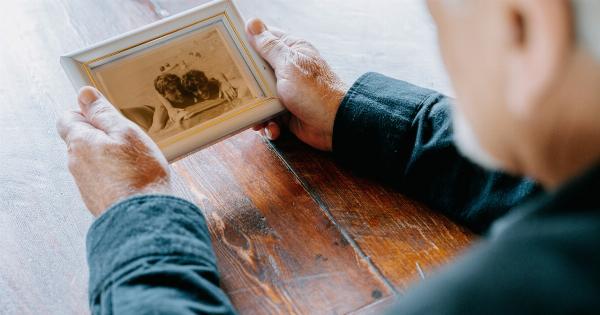Grieving the loss of a loved one is one of the most challenging experiences we can face in life. The heartbreak that accompanies such a loss can leave us feeling broken, overwhelmed, and unsure of how to move forward.
However, it is possible to survive and eventually heal from this deep pain. In this article, we will explore various ways of coping with grief and offer strategies to help you find solace and peace during this difficult time.
Understanding Grief
Grief is a complex and individual process that manifests differently for each person. It is important to recognize that there is no right or wrong way to grieve. Everyone copes with loss in their own unique way and at their own pace.
It is essential to give yourself permission to grieve and to honor your emotions and reactions as they arise. Allow yourself time and space to heal.
The Stages of Grief
While grief is a deeply personal experience, there are commonly recognized stages that individuals often go through. These stages include denial, anger, bargaining, depression, and acceptance.
It is important to note that not everyone will experience these stages in the same order or intensity. Some may skip certain stages altogether. Be patient with yourself as you navigate through these stages, and remember that healing is a nonlinear process.
Seeking Support
During times of loss, it is crucial to reach out for support. Surrounding yourself with loved ones who can offer a listening ear, comfort, and understanding can make a significant difference in your healing journey.
Consider joining a grief support group or seeking professional help from a therapist who specializes in grief counseling. Sharing your feelings and experiences with others who have gone through similar losses can provide immense comfort and validation.
Self-Care and Healing
Engaging in self-care activities can play a key role in your healing process. Take time to prioritize your physical, mental, and emotional well-being.
This might include things like getting regular exercise, eating nourishing foods, practicing relaxation techniques such as meditation or deep breathing exercises, and engaging in activities that bring you joy and peace. Remember to be gentle with yourself and allow yourself to feel all the emotions that come with grief.
Processing Emotions
Grief often brings with it a wide range of emotions, including sadness, anger, guilt, and even relief. It is important to acknowledge and process these emotions rather than suppressing or ignoring them.
Journaling, talking to a trusted friend, or engaging in creative outlets such as art or music can be helpful ways to express and release these emotions. Give yourself permission to feel, and remember that there is no right or wrong way to experience emotions during the grieving process.
Maintaining Healthy Routines
While grief may disrupt your daily routine, it is important to try to maintain a sense of normalcy as much as possible.
Keeping up with regular routines and responsibilities can provide a sense of stability and grounding during a time of immense change and uncertainty. Although it may be challenging, try to establish and maintain healthy sleeping and eating patterns and keep up with any work or personal commitments that you feel able to manage.
Honoring and Remembering Your Loved One
Finding ways to honor and remember your loved one can provide comfort and a sense of connection, even after their physical presence is gone.
Consider creating a memory box with photographs and mementos, planting a tree or flowers in their memory, or establishing a new tradition in their honor. Additionally, participating in activities or causes that your loved one was passionate about can serve as a meaningful way to keep their memory alive.
Allowing Time for Healing
Healing from the loss of a loved one takes time, and it is important to be patient with yourself. Understand that healing is an ongoing process and that you may continue to experience waves of grief years after the initial loss.
Be kind and gentle with yourself along the way, and know that it is okay to seek support whenever needed. Each person’s healing journey is unique, so trust in your own process and believe that you have the strength to move forward.
Conclusion
The journey of surviving the heartbreak of losing a loved one may feel insurmountable, but with time and support, healing is possible.
Remember to be patient with yourself, allow yourself to grieve in your own way, and seek support from loved ones or professionals when needed. Embrace self-care and find ways to honor your loved one’s memory as you navigate through the stages of grief. While the pain of loss may never fully disappear, it is possible to find solace and peace as you heal and move forward.






























